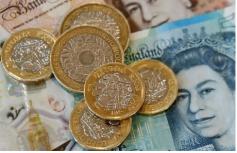There has been a loose discussion in the market about the prospect of GBP/USD hitting parity for some months. This risk has firmed up in the wake of Friday’s tax giveaways from UK Chancellor Kwarteng, with both market pricing and some forecasters’ predictions now suggesting a tangible risk of GBP falling below 1.00.
Is GBP/USD really reaching the parity?
Of course, broad-based USD strength is an important element behind the softness of cable. In analysts’ view, there will be no let-up in USD dominance for some months to come. The greenback continues to benefit from the hawkish position of the USD. Additionally, amid concerns about the pace of global growth, higher Fed rates have only served to underpin the safe haven attraction of the USD.
Irrespective of the position of the USD, however, there is no escaping the fact that GBP is being pummelled as a result of investors’ dissatisfaction with UK fundamentals. On a 5 day view, the pound is the worst performing G10 currency by a wide margin and has recorded a net fall of over 5% vs. the USD.
Cable rebounded only a bit this morning
GBP/USD has edged higher in early European hours this morning. Suggesting the extreme cheapening of UK assets over the past couple of sessions is attracting some interest. That said, the causes of the selloff in both gilts and in GBP have not been addressed and this suggests that the pound remains an extremely vulnerable currency.
Political moves weigh on the cross
Yesterday’s statements from both the Treasury and the BoE were clearly an attempt to sooth market turmoil. The Bank’s warning that it will not hesitate to raise interest rates by as much as is needed to return inflation to the 2% target, was not enough to prevent GBP dropping further initially. This disappointment reflects yesterday’s speculation that the Bank could hike rates immediately. Such action from the MPC, however, may have proved unwise.
If the Bank had played its trump card on rates and GBP had continued to fall, the MPC could have found itself in a cat and mouse game with the markets that could have weighed heavily on its credibility. Instead the Bank will attempt to hold off until is scheduled meeting on November 3 before announcing another policy tightening. Speculation that it could delay a start to its QT programme to ease the indigestion in the gilts market is likely to prevail.


